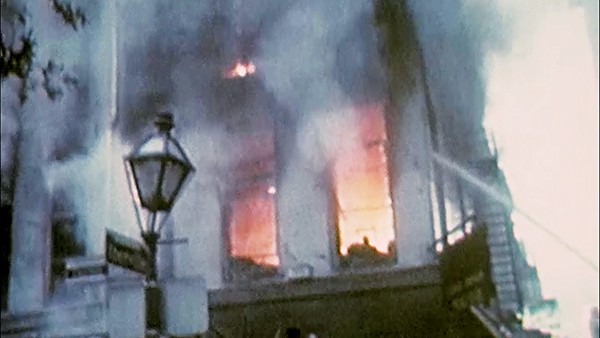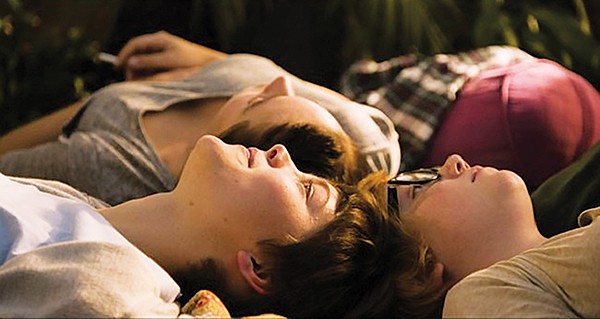Thursday night sees the long-awaited national debut of Morgan Jon Fox’s streaming series Feral.
“It’s been almost exactly two years since we wrapped filming,” says Fox, the pioneering Memphis director whose films like This Is What Love In Action Looks Like and Blue Citrus Hearts have been attracting acclaim for more than a decade.
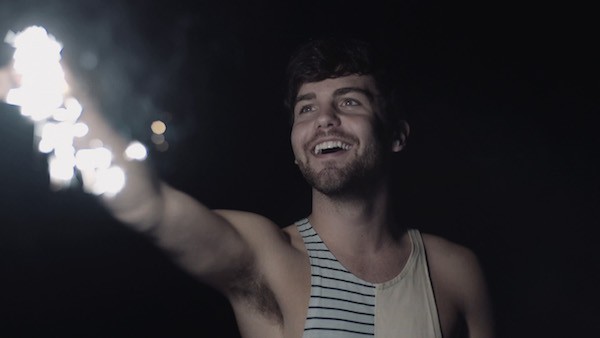
Seth Daniel in Feral
Feral is the flagship original series of a new streaming service called Dekkoo, which will bring LBGT themed films and series to a national audience. It was originally scheduled for release last summer, when I wrote this in-depth Memphis Flyer cover feature about the show. “I’m so excited for it to finally come out, but there were some moments there, when we had so many supposed release dates, that I was a little worried, to be honest. You hear nightmare stories about projects that never end up being released, for whatever complications. But as it tuns out, it’s just that it’s a brand new company that took a lot longer than they planned to get their footing.”
The Dekkoo app is available on Roku and Apple TV, or through Google Play and iTunes, and boasts “the largest streaming collection of gay-centric entertainment available boasting a larger selection than Netflix or Amazon Video.”
Here’s an exclusive clip from Feral:
FERAL – Exclusive Clip – 2 from Morgan Jon Fox on Vimeo.
Morgan Jon Fox’s Series Feral Celebrates National Premiere With Local Screening (2)
“I feel great about it,” he says. “A lot of things aligned perfectly in my head. I took some time off from my career to work on other, bigger productions. I worked with Craig Brewer on his projects, and I worked as a producer and assistant director on other projects all around the country. It was truly like going to film school. Everything aligned perfectly for crew members to help make it and edit it and actors to be in it. All of those things fell into place in a way I feel lucky and fortunate for. “
In the two years since filming completed, many of the show’s stars have seen their careers take an upward trajectory, such as singer/songwriter Julian Baker. “I saw her for the first time in my back yard at a going away party for my friend Ryan Azada. She played solo acoustic, just a few songs. I knew that she was in a band with some guys playing harder stuff, but this was the first time I had seen her. It was an incredible moment that I’ll never forget…the lights in the back yard, all these people there to say goodbye to a good friend of hours. It was a golden moment. I knew this person was going to be huge star. Her music was coming from an emotional, authentic space, and that was the space I was working out of to create Feral. She hadn’t even recorded anything except on her iPhone. The songs on her Soundcloud page had from 5-30 listens. By the time it got around to actually being released, I had to work with her publicist, who had to approve the way we mentioned her in our press releases. She had a team now. Memphis has always had a hotbed for music, but people like Julian Baker don’t come around all the time. She’s a rare being.”
The series other big music stars, the Midtown punk band Nots, just opened Gonerfest last weekend before embarking on a huge east coast tour. Female lead Leah Beth Bolton is now an on-air reporter for Fox 24 in Memphis. “She’s doing traffic, which I think is so cool. It’s perfect for her personality. She brought so much light to the project. Her character is essential, because there so much depressing shit happening, and dudes taking themselves very seriously. She inserts a necessary emotional perspective. ‘Stop being so self-absorbed, dudes!’”
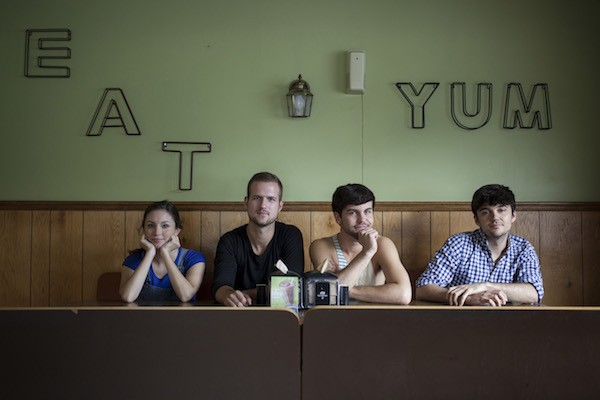 Breezy Lucia
Breezy Lucia
Leah Beth Bolton, Chase Brother, Seth Daneil, and Jordan Nichols in Feral.
Ryan Masson and Seth Daniel are now working actors in Los Angeles, and Jordan Nichols is a stage actor and director who, Fox says, “is acting and directing every play, and winning awards every year. He’s a dedicated actor who works very hard, but he has a natural inclination.”
“There are a lot of stereotypical gay characters presented in media. They tend to be comic relief, or stuck up fashion designers. There’s also stereotypes about the South: It’s backwards, the Bible Belt, all those things. I’ve dealt with those things in my previous work, and I didn’t have a desire or energy to continue to tackle those things.”
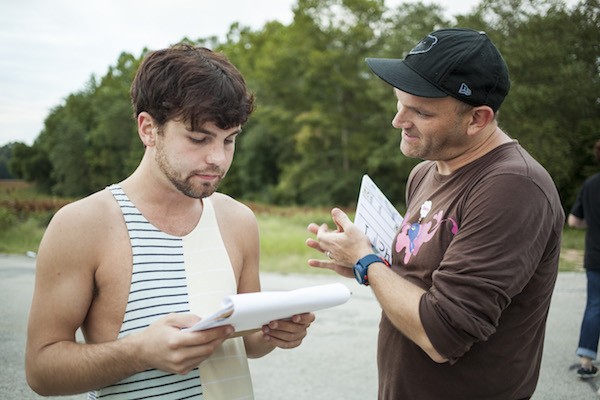 Breezy Lucia
Breezy Lucia
Seth Daniel and director Morgan Jon Fox on the set of Feral
Fox says his goal for Feral was to present a different view of life in the South “I just wanted to reflect what it was like for me growing up in this Midtown community of artists, where everyone’s kind of smushed together. You go to the Cove, which isn’t a gay bar. You go to Otherlands, which isn’t a gay coffee shop. When you’re a Midtown artist, you’re a Midtown artist, whether you’re a queer artist or a straight artist. I love that about this community. The problems that affect me and young people in their 20s in Midtown are the same problems that anyone in our position would deal with. They’re universal. I just wanted them to be people in this situation who intermingle in a very regular way. I didn’t want them to be a community of wealth. I didn’t want them only going to gay bars or going gay things. I didn’t want them to be a part of a South that is hateful or pressing them…I wanted the fact that they’re gay to be unremarkable.”
Fox and Dekkoo will host a release party at Studio on the Square on Thursday, Oct. 6, where the first five episodes of the series will be shown on the big screen. Showtime will be at 7:30 PM.
Morgan Jon Fox’s Series Feral Celebrates National Premiere With Local Screening
